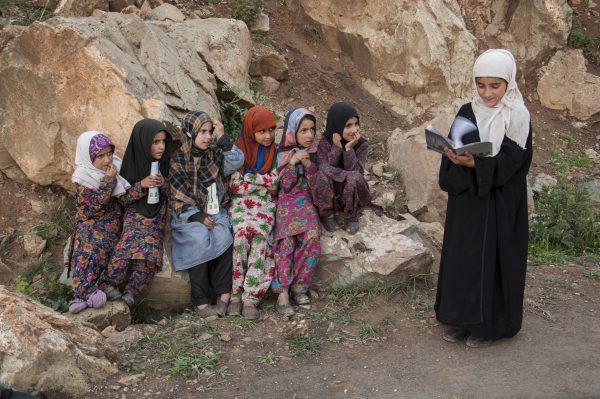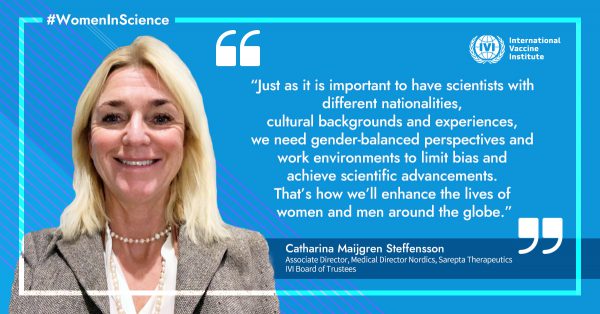At IVI, we’re driven by a vision of a world free of suffering from infectious diseases. Where safe, effective, and affordable vaccines are public goods and not privileges, accessible to all regardless of who they are and where they live. This world must be fair, inclusive, and just, which requires gender equality to inform our approach to vaccine research and delivery, global health, and our relationships with each other.

Gender is a health factor
Globally, girls and women remain unequal to boys and men. Gender impacts social norms, economic mobility, political power, access to health services and education, and the ability to live safely with dignity.
Gender equality, that is, affording equal rights, responsibilities, and opportunities to all people regardless of their gender, is a precondition of a healthy society. Gender equality is not a women’s issue; it is a fundamental human right. IVI firmly believes in creating the conditions for all people to realize their full potential regardless of their sex, gender, gender identity, sexuality, race, citizenship, age, dis/ability, socio-economic background, marriage or civil partnership status, religion, or creed. Gender equality and greater health equity go hand in hand, and IVI is committed to doing its part to accomplish the UN’s Sustainable Development Goal 5: Gender Equality.
IVI and gender equality
A world free of infectious diseases means actively removing gender-related barriers to vaccine access. This shift must be reflected in interpersonal relationships, cultural attitudes, national policies, public health research protocols, and within the international community. IVI’s approach to gender equality is global and local, embedded in our project aims and partnerships at sites around the world and how we work at headquarters.
Examples of gender mainstreaming in vaccine research and development include:
- Incorporating a gender analysis in project designs, beginning in the grant-writing phase
- Ensuring IVI’s research programs consider expanding access to vaccines for girls and women in low- and middle-income countries
- Ensuring gender-inclusive participation in policy-making decisions and valuing diverse representation in study teams
- Conducting equitable epidemiological studies and clinical trials with gender-sensitive communications between research staff and targeted populations
- Prioritizing nuanced understandings of how socio-economic and cultural-religious behavior affects how studies are conducted and their outcomes
- Designing and implementing vaccination programs with a gender-sensitive approach to the role of caregivers
- Applying a gender equality perspective across organizational rules, procedures, systems, mechanisms, projects, and programming within IVI
IVI’s commitment
In 2021, IVI’s Board of Trustees approved a new comprehensive Gender Equality Policy at IVI. This policy recognizes that IVI has areas for improvement and highlights the importance of gender equality in our work and the global goal of increasing access to vaccines and health services for all girls, women, boys, men, and persons with non-binary gender identities. With a framework for gender mainstreaming, promoting gender equality will be a priority for IVI everywhere we work.

More resources for gender equality in global health
- Gender and immunization (Gavi, the Vaccine Alliance)
- Global Health 50/50
- SDG Goal 5: Achieve gender equality and empower all women and girls (United Nations)
- Gender Toolkit: Integrating Gender in Programming for Every Child in South Asia (UNICEF)
- Sida’s Gender Toolbox (Swedish International Development Cooperation Agency)

